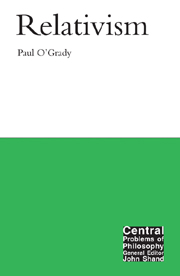2 - Truth and logic
Summary
Much of the negative reaction to relativism is connected to issues about truth and the apparent incoherence of attempting to relativize the notion of truth. The great majority of philosophers have taken for granted the idea that truth and falsity are absolute concepts, whatever else may be relativized. However, there have always been those who rejected this view, holding that truth is indeed relative. Some of these have offered penetrating and ingenious arguments as to how and why the notion of truth should be relativized.
The idea of “truth” is intimately connected to a host of other concepts such as “fact”, “reality”, “belief” and “knowledge” and is fundamental to most conceptual schemes. Hence any deep alteration to the concept of truth would have a profound knock-on effect in many other areas of philosophy, especially if the alteration construed truth as relative rather than absolute. We can call the kind of relativism associated with truth “alethic relativism” (from the Greek word for truth, aletheia). Because truth is so enmeshed with so many other philosophical concepts, the lines of argument concerning alethic relativism get quite tangled. Here, then, are some of the issues that need to be addressed. If truth is relative, then it would follow that something could be true here but not there, or the very same thing that is true today could be not true tomorrow. On the surface this looks like a contradiction, but in fact alethic relativism has often been invoked as a way of avoiding contradiction.
- Type
- Chapter
- Information
- Relativism , pp. 27 - 52Publisher: Acumen PublishingPrint publication year: 2002
- 1
- Cited by

